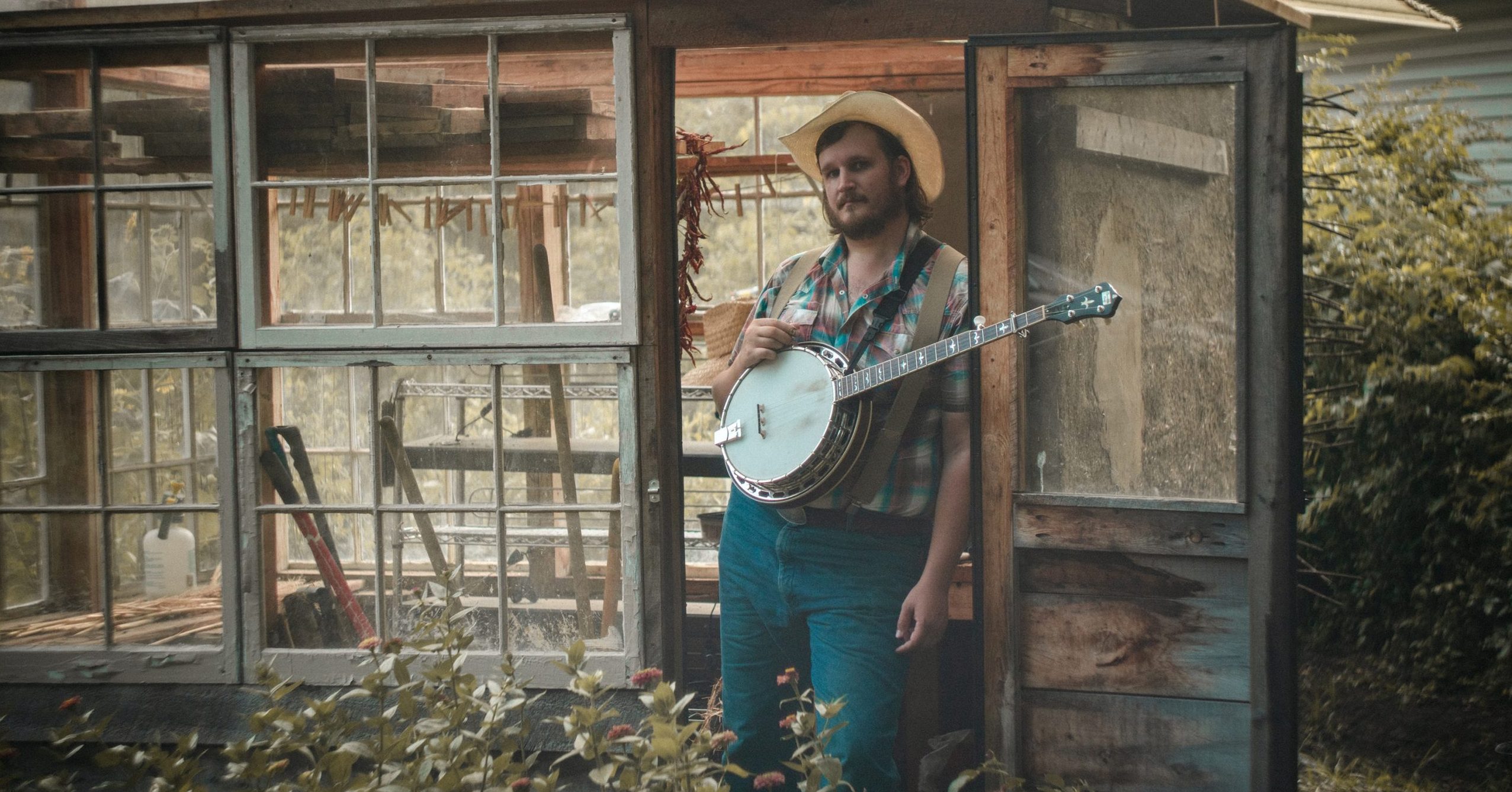Folk, country, and Americana join together in this week’s edition of our new music and premiere roundup. You Gotta Hear This!
The lovely and ethereal Tift Merritt is celebrating 20 years since the release of Tambourine this year with an upcoming vinyl reissue and a special collection of demos to go alongside it. Kicking off our new music collection today is one of those demos, “Good Hearted Man,” an intimate kitchen recording of just piano and vocals.
From the country realm, two impeccable artists and singer-songwriters have new albums out today, William Beckmann and Kelsey Waldon. Kentuckian Waldon sings about family ties, generational cycles, and finding oneself on “My Kin,” available today on her stunning new project, Every Ghost. Texan Mexican American Beckmann, for his part, brings a gorgeous, retro-styled music video for “Lonely Over You” that draws inspiration from classic television variety shows and huge musical personalities like Roy Orbison and Elvis.
Elsewhere in our collection you’ll find Steve Gillette paying tribute to his friend, musician and songwriter Gamble Rogers with the touching homage, “Song for Gamble.” The bluesy, energetic track is paired with vintage clips of Rogers set alongside photos and performance and recording footage of Gillette.
To celebrate Juneteenth yesterday, Kyshona released a new single, “More In Common (Live From the Blueroom Studio),” contextualizing the track saying, “I’m releasing ‘More in Common’ on Juneteenth as a reminder that none of us are truly free until all of us are free.” It’s an excellent, all-too-timely reminder – and you’ll be sure to enjoy the performance video shared below.
We always love wrapping up the week with the best new roots music. And you know what we think– You Gotta Hear This!
Tift Merritt, “Good Hearted Man (Kitchen Recording)”
Artist: Tift Merritt
Hometown: Raleigh, North Carolina
Song: “Good Hearted Man (Kitchen Recording)”
Album: Time and Patience (a collection of demos releasing in tandem with the 20th anniversary vinyl reissue of Tambourine)
Release Date: June 18, 2025 (single); August 29, 2025 (album)
Label: One Riot Records
In Their Words: “When I hear my 27-year-old self singing this song, after just having finished writing it, recording in the kitchen on an ADAT machine, I hear my dreams. I can’t help but smile – at my big dreams, the raw reaching, the no costume. I am enormously proud of these kitchen recordings and Tambourine, so happy they are coming out to the world this fall.” – Tift Merritt
Track Credits:
Tift Merritt – Piano, vocals
Kyshona, “More In Common (Live From The Blueroom Studios)”
Artist: Kyshona
Hometown: Nashville, Tennessee by way of Irmo, South Carolina
Song: “More In Common (Live From The Blueroom Studios)”
Release Date: June 19, 2025
Label: Lamiere Records/Moraine Music Group
In Their Words: “I’m releasing ‘More in Common’ on Juneteenth as a reminder that none of us are truly free until all of us are free. What if we took ‘I,’ ‘mine,’ ‘them,’ and ‘me’ out of our vocabulary—just for a moment? It’s so easy to tune out, to disassociate from the chaos we’re witnessing. But what if we remembered that we are under attack? That every child is our child?
“After a full year of touring the Legacy album, it’s been deeply moving to see how my own family’s story – of freedom, land ownership, and the wisdom of our elders – resonates with people from all backgrounds. No matter your race or religion, there’s a common thread in how we were raised and what we’ve inherited.
“When we peel back the layers that divide us and look closer at our shared values and stories, we begin to reconnect. The conversations that have come out of this tour have been powerful. People aren’t talking about differences – they’re talking about what unites us.
“As a society, I think we’ve gotten lazy. We’ve stopped looking for what ties us together. My hope is that this song reaches the quiet few who’ve been asking, ‘What happened to us? May it serve as a gentle nudge to follow the thread instead of cutting the seams.
“There’s a lot of noise in the world right now, and I know this message may not reach everyone. But if it reaches even one person – someone overwhelmed by it all – let it be a reminder: we can make ripples of good.
“All it takes is open eyes, open ears, and the courage to show up for each other. Let people know they are seen. Let them know their existence matters.” – Kyshona
Track Credits:
Larissa Maestro – String arrangement, cello
Kristin Weber – Violin
Kyshona Armstrong – Vocals, songwriter
Simon Gugala – Songwriter
Video Credits: Recorded at The Blueroom Studios.
Videographer – Jesse Carr
Edited by Caryn Johnson, Tiny Sunshine Studios.
William Beckmann, “Lonely Over You”
Artist: William Beckmann
Hometown: Del Rio, Texas
Song: “Lonely Over You”
Album: Whiskey Lies & Alibis
Release Date: June 20, 2025
Label: Warner Music Nashville
In Their Words: “I wrote ‘Lonely Over You’ with Jesse Frasure and Jessie Jo Dillon. It’s probably my favorite song that I wrote for this album. To me, it feels reminiscent of Roy Orbison, and there’s definitely some Elvis influence in there too. I love the way it was tracked and recorded—there are a lot of stacked harmonies, which give it that lush sound. It’s a new direction I was able to discover and bring to this record. I also think the music video for ‘Lonely Over You’ is my best yet. We shot it all on film in Austin, Texas, and aimed to capture the vibe of the Elvis comeback special. The set design was incredible and made it feel like we were in the late ’60s or early ’70s. Altogether, it’s a special song. I’m very proud of it, and the video that goes with it is a great piece of art as well. We’re looking forward to sharing it.” – William Beckmann
Track Credits:
William Beckmann – Lead vocals, background vocals, acoustic guitar, songwriter
Chad Cromwell – Drums, percussion
Craig Young – Bass
Jedd Hughes – Electric guitar, acoustic guitar
Jesse Frasure – Baritone guitar, background vocals, songwriter, producer
Jimmy Wallace – B3, piano, synth
Jon Randall – Acoustic guitar, producer
Todd Lombardo – Acoustic guitar
Jessie Jo Dillon – Songwriter
Kelsey Waldon, “My Kin”
Artist: Kelsey Waldon
Hometown: Monkey’s Eyebrow, Kentucky
Song: “My Kin”
Album: Every Ghost
Release Date: June 20, 2025
Label: Oh Boy Records
In Their Words: “I am the best of my kin and I am the worst of my kin. I got all of it. It took me a long time, but now, I love that for me. That means I got all of the character, the resilience, the grit, the beauty, the spirit, the humor, the independence, the self-sufficient ideals, the wisdom, and so much more. That, unfortunately, also means I also got the generational trauma, the demons, the stubbornness, the guilt, the defensiveness, and the thing that makes me want to push away anyone who tries to help or love me. I got the gene that makes me want to self-destruct a little bit, for sure. This song is saying, ‘I am all that, and I do have these issues, but the difference is that I am willing to learn and grow, and I am finally willing to break these cycles as well.’ These things are a part of me, and you will have to take me as I am, to a certain extent, and have patience with me. And don’t you love that all these things make me who I am? We just have to learn how to reign them in and use them for good.” – Kelsey Waldon
Track Credits:
Kelsey Waldon – Rhythm acoustic guitar, lead vocals
Junior Tutwiler – Electric guitar, baritone, high strung guitar, lead acoustic guitar
Cooper Dickerson – Pedal steel guitar
Blakely Burger – Kentucky fiddle
Erik Mendez – Electric bass, Rhodes, and Wurlitzer electric piano
Evan Kesel – Drums, percussion
Kristen Rogers – Background vocals
Steve Gillette, “Song for Gamble”
Artist: Steve Gillette
Hometown: North Bennington, Vermont
Song: “Song For Gamble”
Album: Steve Gillette – The Best Of…
Release Date: June 20, 2025
Label: Compass Rose Music
In Their Words: “I met Gamble [Rogers] at the Bitter End in New York in 1967 and we bonded over songs and Merle Travis’ guitar finger picking that became known as ‘Travis Picking.’ Over the years, we would often run into Gamble at festivals or when he was in the New England area. One time stands out for me, when I arrived in Kerrville in 1984: Gamble was booked to perform on the main stage, but he also gave a special one-hour workshop on his guitar technique and his performance ideas. He was so generous about sharing the secrets of his showmanship, and of course, that was consistent with his selflessness as a person. Sadly, it was just his willingness to consider others before himself that contributed to his losing his own life while trying to help another. He was with his family for a day at the beach just south of St. Augustine, Florida, when a little girl ran up to him in tears, begging him to help her father, who was in trouble in the surf. Gamble went into the water, but was unable to help the man and, sadly, both were drowned. That beach is now known as the Gamble Rogers Memorial State Recreation Area.” – Steve Gillette
Track Credits:
Steve Gillette and Charles John Quarto.
Video Credit: Thank you to Rick Davidson, Cathy Roberts, and Sherry Boas for their photos and video contributions.
Photo Credits: Tift Merritt by Alexandra Valenti; Kyshona by Anna Haas.

